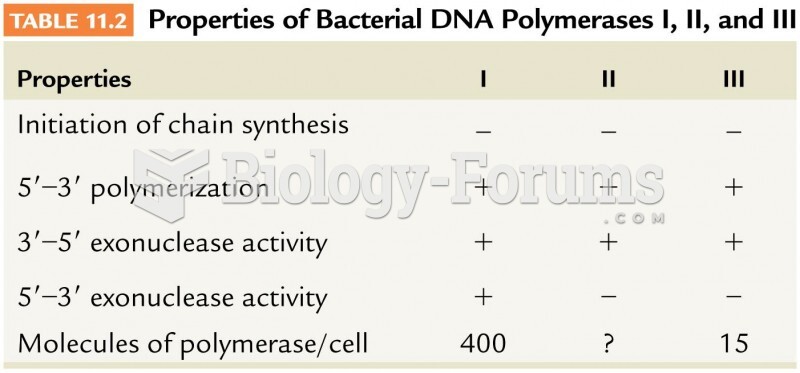|
|
|
The human body produces and destroys 15 million blood cells every second.
The highest suicide rate in the United States is among people ages 65 years and older. Almost 15% of people in this age group commit suicide every year.
The term bacteria was devised in the 19th century by German biologist Ferdinand Cohn. He based it on the Greek word "bakterion" meaning a small rod or staff. Cohn is considered to be the father of modern bacteriology.
Asthma-like symptoms were first recorded about 3,500 years ago in Egypt. The first manuscript specifically written about asthma was in the year 1190, describing a condition characterized by sudden breathlessness. The treatments listed in this manuscript include chicken soup, herbs, and sexual abstinence.
If you could remove all of your skin, it would weigh up to 5 pounds.
 Lestidae is a rather small family of cosmopolitan, large-sized, slender damselflies. They are of the
Lestidae is a rather small family of cosmopolitan, large-sized, slender damselflies. They are of the
 Paper disks containing various antibiotics are placed on a bacterial culture. If the bacteria are ...
Paper disks containing various antibiotics are placed on a bacterial culture. If the bacteria are ...
 If raising a vehicle without a frame, place the flat pads under the pinch weld seam to spread the ...
If raising a vehicle without a frame, place the flat pads under the pinch weld seam to spread the ...
 Finish with bilateral stroking to the entire back. Stand at head of the table with fingers pointing ...
Finish with bilateral stroking to the entire back. Stand at head of the table with fingers pointing ...



